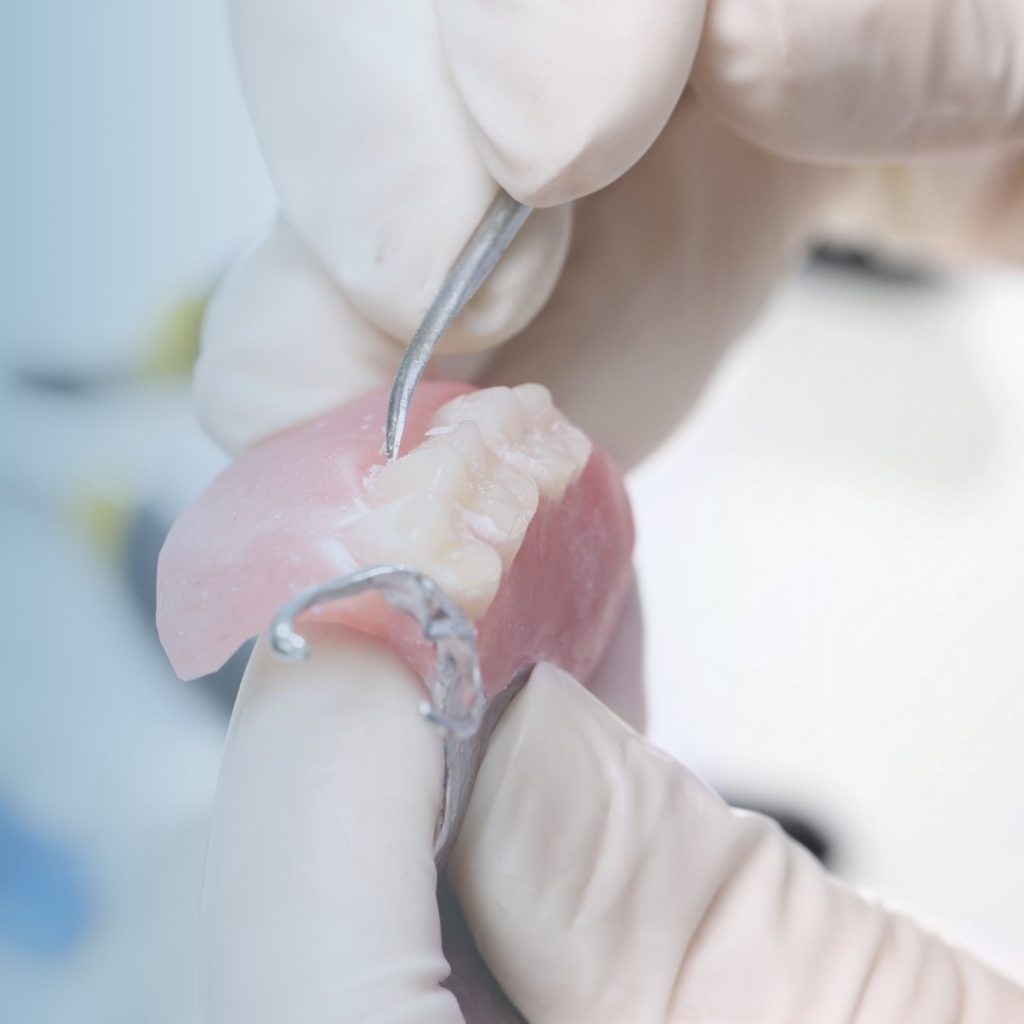Denture Relines Randolph MA
Are you finding that your dentures no longer fit like they used to? If so, you may want to consider having them relined. Denture relining is a common procedure in which your dentist makes alterations to your dentures so that they fit more comfortably.
Topics covered:
- Denture relining process
- Hard reline
- Soft reline
- Temporary relines
Denture Relining Process
Denture relining is normally a simple process that takes no more than one hour to complete. To begin, your dentist will assess the state of your mouth and soft tissue irritation. If your poorly fitting dentures have caused significant swelling or sores, your dentist may offer a temporary reline to give time for your mouth to heal and recover. You would then return at a subsequent appointment for a permanent reline.
To reline your dentures, your dentist will clean your dentures and remove some material from the denture plate. The areas that will be removed are those that are causing irritation to your mouth. Next, your dentist will apply a reline resin to your dentures. They will ask you to replace your dentures into your mouth, gently biting down to create an impression in the resin. The reline is complete after the hardening of this resin.

Hard Reline
Most relining is considered to be a hard reline. This process will lead to increased comfort for anyone except those with highly sensitive gums. The material used in a hard reline is made from an acrylic material similar to that used in your original dentures. If you undergo a hard reline, the process should not need to be repeated more often than every year or so.
The only problem with a hard reline is that it may take more than one dental appointment. This happens when your dentist creates an impression that must be sent to a dental lab for development. In the meantime, you would be without dentures for a few days, but after receiving the reline dentures, you should find that the hard resin offers a perfect fit.
Soft Reline
Soft relining resin is made from silicone, offering a softer and more comfortable denture base. Soft relining is a good choice for anyone who has thin or particularly sensitive gums.
The drawback of getting a soft reline is that the material is not as durable as a hard reline. As a result, you would require more frequent relining appointments than if you had a hard relining.
Relining is appropriate for older patients with thinner gums and significant gum recession.
Temporary Relines
If you have not had your dentures adjusted for a long time, your gums may be swollen, red and misshapen. If your dentist needed to create impressions for the development of a new hard or soft reline, this could cause problems.
A temporary reline may be indicated to resolve inflammation. This will make your dentures fit more snugly using a soft and pliable material. When your gums have returned to their normal shape, you can return for a more permanent denture reline.

